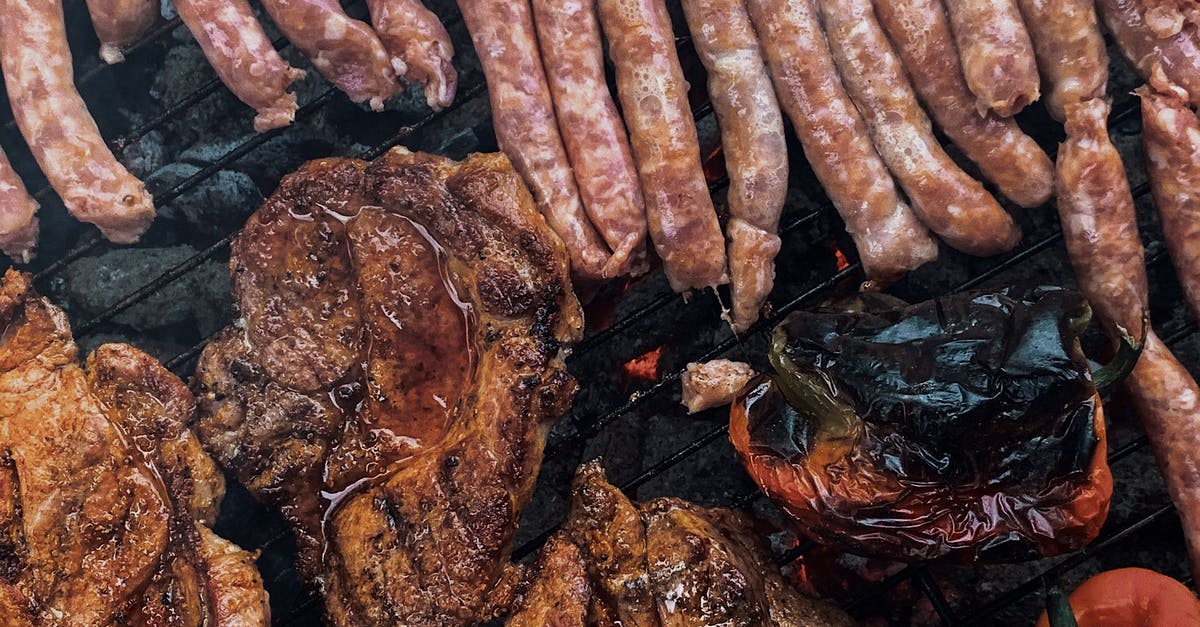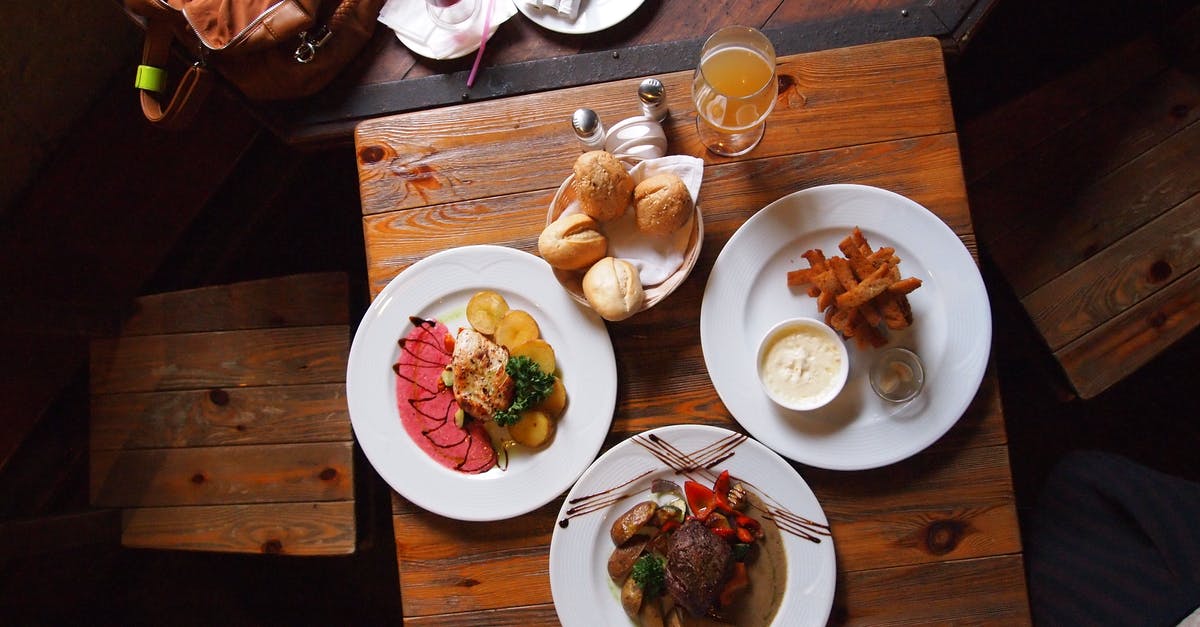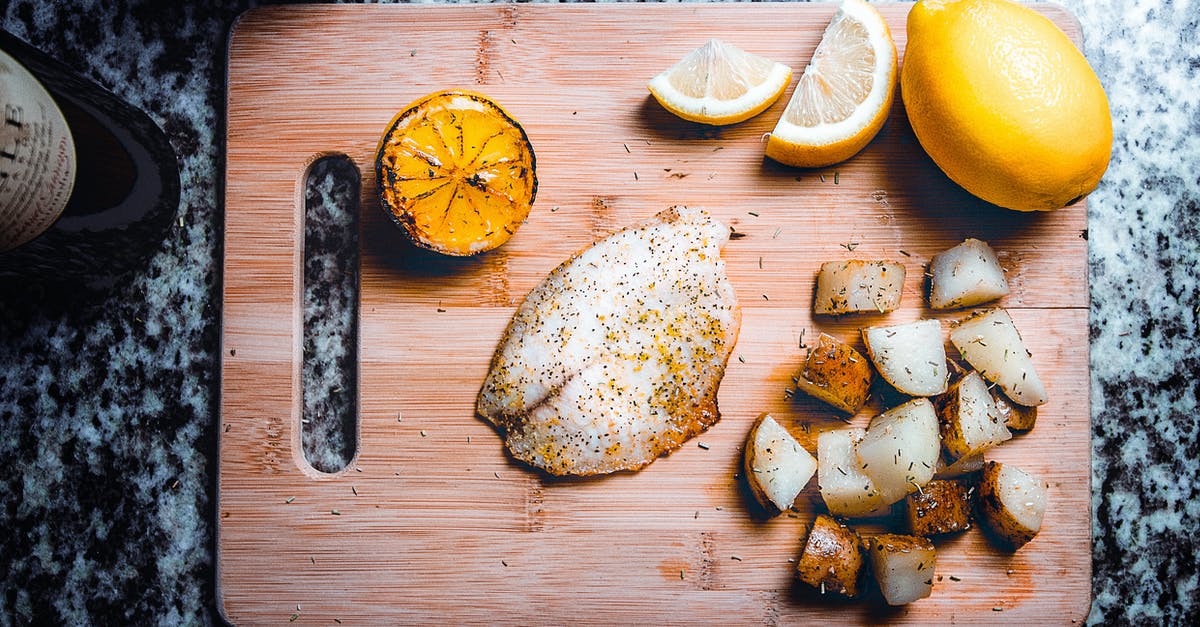Any benefit to buy high-quality meat for a mediocre cook?

Quite honestly, I consider myself a mediocre cook as I am consistently able to make decent dishes. Nothing I ever make is fantastic and almost never terrible.
The question is this: will my cooking benefit from buying higher-quality meat even though my cooking skills are not fantastic? What improvements could I expect to see?
Best Answer
This is a great question, but not one that can be answered with "yes" or "no".
In some areas, it is known that the professional grade tools and ingredients require much skill to use well and so the general public is better off using consumer grade tools. (Try tasking the average office drone to create a report with Word or QuarkXpress and you'll see what I mean). But there is no such general rule in cooking. And yet, this does not mean that better quality meat will always make better quality food. It depends on the details of each situation.
First, what does "high quality meat" mean? A filet mignon is a prized cut, and costs much more than shank. But even the best cook cannot make a good stew out of filet mignon. So in the first place, you have to know which category of meat is suited for the dish you are making. Only within a given category will better meat produce better results.
Second, "quality" means different things to different people. A cooking beginner usually cannot recognize which meat will produce better results in the given category and goes by factors like price and store reputation to decide which meat must be better quality. This is not necessarily correlated to better taste. So, as a beginner, you can pick meat you believe to be better, but end up with worse results.
The combination of these two points means that you should be aware of the difference between a "better" cut and a higher-quality version of the same cut. A "better" cut is actually a different cut, so it's a substitution that usually won't guarantee a better result. But a higher-quality upgrade of the same cut is likely to make a dish better. So, you need the cooking skill to tell a given piece of meat will be a good substitution for your earlier choice (a higher-quality version) or not (it is simply a better cut). Also, if somebody is trying to sell you a different version, you need to be able to recognize its quality (marbling in steaks, color intensity in pork chops, etc.)
Third, you can certainly find many cases where the more refined dishes, which need rarer, prized cuts, require a lot of skill to pull off well. So, if you decide to buy the "better" meat - as in the filet mignon vs. shank example - and have enough knowledge to match the dish to it, your skill might not be sufficient to pull off the dish for that meat well, while it would have been sufficient to make a good dish of the type for which the cheaper meat was suited.
Fourth, for each dish, the relative influence of skill vs. ingredient quality will be different for the final dish quality. So, it is possible that for going from "horrible" to "kinda edible" you need to get some skill, no matter what meat you use, but the jump from "kinda edible" to "not that bad" requires better meat, not better skill.
It is impossible to list all possible situations, dishes and meat cuts and say for each where the end result quality is skill-limited and where it is ingredient-limited. I am afraid that you have to be an intermediate cook before you can recognize if a mediocre cook can improve his results by cooking a given dish with better ingredients.
Pictures about "Any benefit to buy high-quality meat for a mediocre cook?"



The Meat You Should Absolutely Never Buy, According To A Butcher
More answers regarding any benefit to buy high-quality meat for a mediocre cook?
Answer 2
Whether you are a skilled cook or not, the quality of the end result will be helped by better quality ingredients.
Take insalata caprese as an example, this is a salad of tomatoes, mozzarella and basil finished with a bit of olive oil and seasoned with salt and maybe a bit of pepper. It takes almost no skill to prepare this salad, you simply slice the tomatoes and mozzarella and then arrange them stacked on a plate with basil leaves on top, then drizzle olive oil on it and sprinkle a bit of salt on it.
The end result in this case depends entirely on the quality of the ingredients, if all you can get are hard tomatoes and flavorless mozzarella you may as well save your money, but if you can get ripe tomatoes and good buffalo mozzarella with fresh spicy basil and a bit of fine sea salt then you will be a cooking hero to whoever eats it.
Meat is similar, it takes very little skill to make a decent steak as long as your meat is ok, but no amount of skill will turn really bad quality steak into a really good result. By bad quality I mean from an animal which has been raised poorly with a bad diet resulting in meat that has no marbling, lots of sinew, and no flavor.
You can make up for lower quality meat quite a bit using techniques like marinading, mechanical tenderization and sous vide cooking, but it's not a replacement for really good meat to start with.
Answer 3
There's no general answer, but you might be able to do a decent job of figuring out each case on your own by considering:
- how strongly does the ingredient contribute to the dish?
- how big is the difference in quality between your choices for the ingredient?
If it's a core ingredient whose flavor and/or texture comes through strongly in the dish, then there's room for a higher-quality version to make a big difference. That is, if you're just eating a steak, the quality matters more than the quality of ground meat in meatballs in in a flavorful sauce that covers up the meat some, and a lot more than the quality of the bacon crumbles you sprinkle over the top of a dish. Conversely, if you want to try a high-quality version of some cut of meat, you'll probably be best off making something simple with to start with, so you can get the full benefit of the quality.
Then there's the quality range. There's a pretty decent range of quality in meat in general, but if your options are limited to a grocery store that has a couple different USDA grades of a couple different cuts, there may not actually be that big of a difference to make. On the other hand, if someone at your farmer's market sells really good meat, it might be a pretty obvious difference from your supermarket meat.
It's difficult to be too specific, though; you might ultimately have to try a few things and look at the prices and see whether you think it's worth it. That's especially true for steaks, since a lot of different cuts can be cooked as a simple steak, and plenty of room for personal preference.
Bottom line, I suppose: use your best judgment about the dish you're aiming to make, and if you want to explore, just explore!
Answer 4
I would to the high quality answers already provided that what is considered to be higher quality even when correct for the application is a common opinion, but might not be shared by an individual. For me, and most common grading a high quality steak is one with marbling the melts when cooked and a steak or roast cooked on bone has higher flavor. My partner however will not eat meat cooked on the bone and any hint of fat gets immediately carved our making a well marbled T-bone fit for the trash in her opinion.
In addition, very high quality can sometimes also be less forgiving. An average steak which has been allowed to go over temp by a few degrees might not be as good as the same piece of meat cooked perfectly, but a prized piece of Kobe or Wagu overcooked the same amount would make me cry.
I personally would work on a technique for a recipe with a common, good but not overly priced quality of meat and experiment with heat control, spicing, finish temperature, etc., one or two variables at a time until I had what I thought was a consistently good result. Then I would upgrade quality as a separate variable to validate improvement.
Answer 5
Second answer from me because unrelated advice on the same topic:
For a learner, it is helpful to adopt two habits:
Try different varieties and qualities of a main ingredient in a dish that you are already good at
Use a reliable staple quality of any ingredient that you do not want to "put to the test" in what you are doing. Best example is in baking - standardizing on a default flour, baking margarine, milk, yeast, sugar grade/brand (not using different ones unless intentionally) helps understanding which differences recipe changes cause.
Answer 6
This is a fantastic question. And I am tempted to give a completely different, much shorter and possibly more scientific answer, than the accepted one.
I will be assuming that you are referring to a better quality of an otherwise equivalent piece of meat, i.e. the same cut, and that you are referring to preparing the same dish with different qualities of meat.
Generally, the taste of the food will change to the better most definitely if the switch in quality is from cheap supermarket meat (that is often full of water, hormones and chemicals and is produced in quantities) to artisan meat (from healthy, naturally grown animals), whatever the dish. It could turn out, however, that you used to cook with cheap meat and learned how it behaves in the pan, and using a better quality of meat it could happen that you experience that it behaves completely differently and not as intended. Applying rules that work well for cheap meat to higher quality meat could lead to results that are inferior, at least initially, as long as your cooking did not adapt to the changed situation. The benefits in taste and ease of handling. After a couple of tries, you should experience that it is much easier to make a better quality piece of meat make taste good than a cheap piece of meat.
The answer is less definitive when going further upward in quality. The reason is in particular, that a particular way of handling and feeding the animals can lead to a different nature of the piece of meat at hand that either suits or does not suit the dish at hand, but does not per se mean having better or worse quality.
Concerning your cooking skills, trying out different qualities of meat for the same dish most ceartainly will benefits your experience and improves your skills.
Answer 7
You asked if your cooking will benefit from more expensive cuts of meat, or better 'grades' of meat, but also were far too humble! If you are able to make 'consistently decent dishes', you are quite accomplished, although perhaps not a 'chef' or expert in culinary ability.
I have read many comments here, and there were many that said...explore, vary your cuts with different seasonings, spices, perhaps marinades, such as what Jefromi said:
..."It's difficult to be too specific, though; you might ultimately have to try a few things and look at the prices and see whether you think it's worth it. That's especially true for steaks, since a lot of different cuts can be cooked as a simple steak, and plenty of room for personal preference.
Bottom line, I suppose: use your best judgment about the dish you're aiming to make, and if you want to explore, just explore!"...
I have had cuts of beef that I was told were practically inedible, and tough, but rendered them delicious, tender and great, all by playing with marinades, length of cooking and temperatures. And dlb stated it well, that one person who loves marbling in their meat may not be able to bear a leaner, dryer piece of steak.
You sound perhaps, that you are just a bit bored by your own cooking, I know I get into a rut and would like a 'superbly prepared and delightfully delicious roast, or prime rib, but it is not out of your reach! Play in the kitchen!
Answer 8
As others have pointed out this is not a binary situation. Nor is it a problem of scale.
There are two basic sides to this.
First, there are times when you want a lessor cut of meat, or a lessor "quality" fruit. For examples:
- When making Banana Bread you don't want green bananas you want nearly rotten "over ripe" bananas. You go to the produce store and ask for the bananas that are so bad they pulled them off the shelf.
- One of our favorite meats is a "Utility cut" pork steak. It's almost a pork chop, but it's a lessor "grade" of meat. It's fatty, but that fattiness make it excellent for grilling at a high temperature. So I use it to make "Pork chops" that have a caramelized tangy sauce on it. If I tried that with a "high end" pork chop I would end up with shoe leather.
In these cases "quality" can be deceiving. The foods with a perceived higher quality would ruin the recipes.
Next up is the other side, when my wife and I first mover in together, I warned her that she was probably going to get a mild upset stomach for a week or two. She didn't believe me, but then she did. When she asked why, I pointer out that the cuts of meat, the fruit, and veggies that I use to cook are of a much higher quality then what most people eat. That that change in diet can cause people to get a little sick. It's no big deal for us to go out and eat once in a while, but if we eat out for a week straight, we end up with that mild stomach ache again.
In this example, the "lower" quality foods make us a bit sick. Mostly because after a while you get used to not eating them. This includes all processed foods, all artificial foods, frozen (not fresh) fruits and veggies, and meats that are from unknown sources. Now I know that sounds really bad and "food hippie" like, but it's really not.
So in this way, for us eating "higher quality" foods makes a difference. A great example is bread. We do not eat store bought bread. We make it our selves. The bread is of very high quality when made at home. Some times, for larger events (like a huge cook out) we get bakery bread. Again much higher quality then the normal store bought stuff. So a ham sandwich with home made bread, home cooked ham, and high quality cheeses, is much better then Wonder Bread, Oscar Mayer ham, and Kraft cheese squares. But then again that gap is so wide, we would actually get sick if eating the latter for a few days (in contrast, that's about what we eat from Dec. 26th to Jan 1)
Answer 9
Always buy the best that you can afford. Start with good ingredients and don't mess with them too much. That said, if you are using mediocre products/meat due to financial reasons then try looking at some of the less fashionable/cheap cuts. For example: HERE
There is only one way to become a better cook - practice, practice, practice.
Just a quick edit: If you really are unsure about what to buy, or why the price is one thing or another, talk to the butcher, not only will you have a whole wealth of knowledge to plunder, but he really would like to keep you as a long term customer, it's in his interest to inform you and sell you meat that you enjoy.
Answer 10
There are at least two valid basic philosophies:
It is the cook's responsibility to make non-defective ingredients taste great.
It is the cook's responsibility to prepare great ingredients without causing defects.
Especially in the first "school", "quality" is extremely subjective unless it is about using sanitary, unspoiled, safe, legally sourced and correctly declared ingredients.
Answer 11
One of the ways I learned was to use the same cut from the same supplier over and over, changing small things in how I prepared it, and most importantly writing it down
More Garlic, less basil. was it good? And so on and so on. When I was able to get consistent results, I graduated to higher quality cuts and that made things even better, but I think the key was consistency in the cooking method.
I would strive for consistency before trying to figure out all the variables of meat quality.
So be patient and practice. Don't sell yourself short, you may think yourself a mediocre cook, but the fact that you are trying at all puts you light years beyond soooo many others out there. Keep it up, cooking is fun.
Answer 12
If all else is exactly the same (cook, recipe, etc), then using cheap-o meat from the Aldi or other meat discounter could never produce the same quality meal as when you'd buy the same cuts from a butcher. But on the other hand cheap meat is cheap because that's what most people want. There is thus a demand, so know your audience, as some people may not even notice a difference.
Answer 13
As others have mentioned, the right cut for the dish is important, as is knowing when to cut across the grain for a tenderer chew. That seems to be the key to using cheaper cuts, which definitely have their place (fajitas if nothing else). Don't be scare to cook it rare.
Also even though some folks don't consider it "meat" when selecting fish it should smell inoffensive, "like the ocean". And don't overcook it. I am a fellow mediocre cook and I think your question is a good one.
You should eschew Wagyu beef (not that great) and anything sold as "Kobe" because it's definitely fake.
Sources: Stack Exchange - This article follows the attribution requirements of Stack Exchange and is licensed under CC BY-SA 3.0.
Images: Kampus Production, Dids, Pixabay, Spencer Selover
